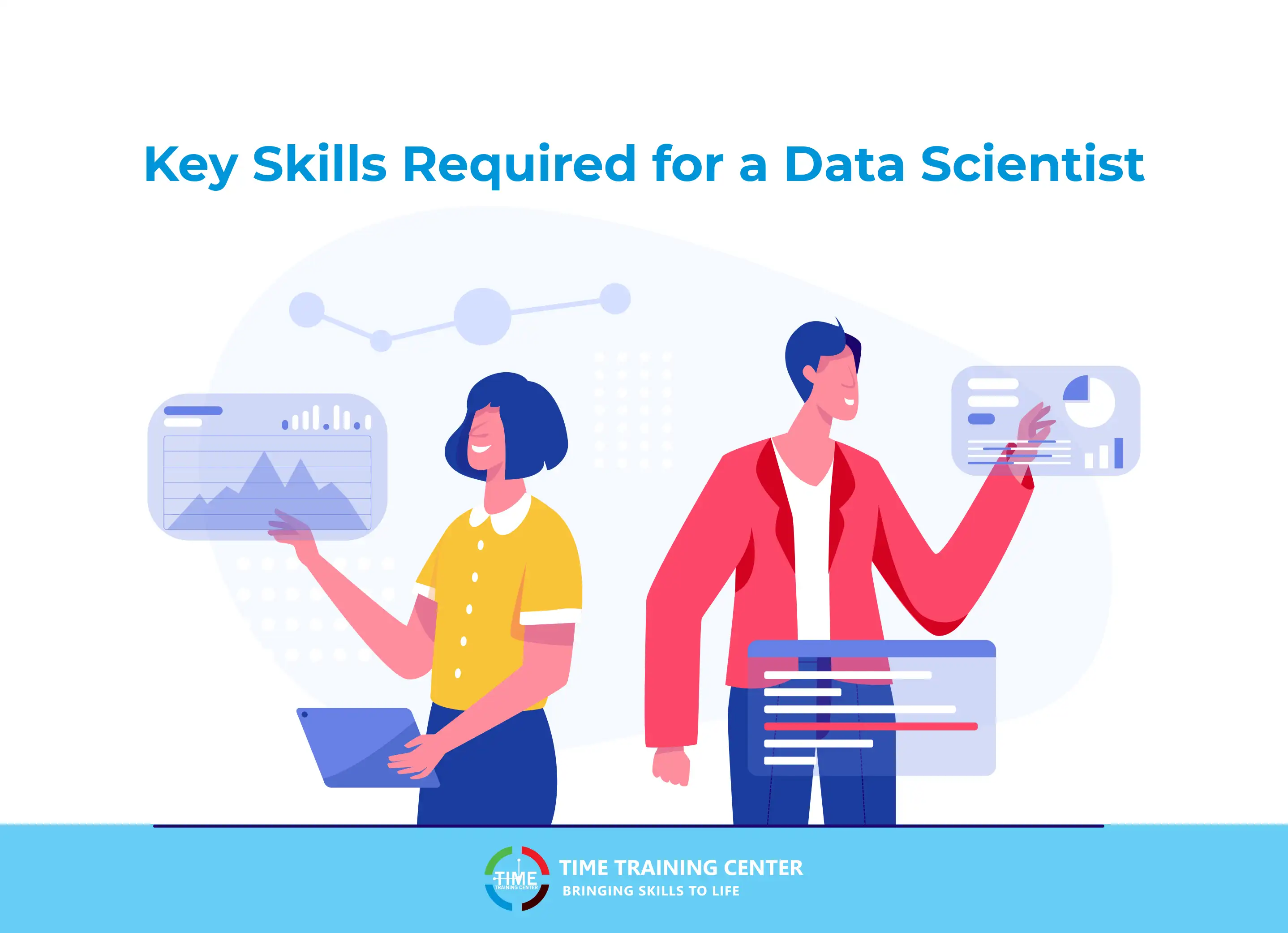In today's digital world, data analysis is crucial in driving informed decision-making and business success in today's digital world. Data analysts are the professionals responsible for extracting valuable insights from vast amounts of data. They possess the data science skills to collect, clean, analyze, and interpret data to provide valuable insights and support strategic decision-making processes.
The ability to effectively analyze data has become essential for organizations across industries to stay competitive and adapt to rapidly changing market dynamics. Data scientist skills are highly sought after in this data-driven landscape.
Responsibilities and tasks performed by data analysts include;
-
Collecting and cleaning data from various sources
-
Performing exploratory data analysis to uncover patterns and trends
-
Applying statistical techniques to derive meaningful insights from data
-
Creating and maintaining databases and data infrastructure
-
Developing data models and algorithms for predictive analysis
-
Designing and generating reports and visualizations to communicate findings
-
Collaborating with stakeholders to understand data requirements and deliver insights
Identifying opportunities for process improvements and data-driven decision-making
Keeping up to date with the most recent tools, technologies, and methodologies in data analysis.
Check Out: Data Science vs. Data Analytics
6 Key Skills Required for a Data Scientist
Data analysts require a diverse skill set to excel in their roles. From programming proficiency and data manipulation to statistical analysis and problem-solving, these six key data science skills empower analysts to extract valuable insights and make informed decisions.
-
Proficiency in Programming Languages
-
Data Manipulation and Querying
-
Statistical Analysis and Modeling
-
Data Visualization and Communication
-
Problem-Solving and Critical Thinking
-
Domain Knowledge and Business Acumen
-
Proficiency in Programming Languages
Proficiency in programming languages is a fundamental skill for data analysts. It enables them to handle and manipulate data efficiently, perform complex calculations, and automate repetitive tasks. Popular programming languages for data analysis include R, SQL, and Python.
Data analysts with programming skills can write scripts and develop algorithms to extract, transform, and load data. Moreover, programming skills enable data analysts to utilize specialized libraries and frameworks for enhanced efficiency and productivity.
-
Data Manipulation and Querying
Data manipulation and querying skills are crucial for data analysts. These skills involve working with databases, understanding data structures, and extracting relevant information through SQL (Structured Query Language) queries.
Data analysts must be proficient in data cleaning and transformation techniques and merging and joining datasets to ensure data integrity. With strong data manipulation and querying skills, analysts can efficiently extract valuable insights from large and complex datasets, providing accurate and reliable results.
-
Statistical Analysis and Modeling
Statistical analysis and modeling skills are essential for data analysts to derive meaningful insights and make data-driven decisions. Proficiency in statistical concepts, such as hypothesis testing, regression analysis, and probability distributions, allows analysts to understand relationships within the data, identify patterns, and draw accurate conclusions.
Data analysts employ statistical techniques to uncover trends, predict future outcomes, and evaluate the effectiveness of business strategies. A solid foundation in statistical analysis enables analysts to provide valuable insights and support evidence-based decision-making.
-
Data Visualization and Communication
Data visualization and communication skills are critical for data analysts to convey complex information and insights to stakeholders effectively. Analysts should be able to transform raw data into visually appealing and informative charts, graphs, and dashboards.
This skill helps stakeholders grasp key findings quickly and make informed decisions. Data analysts require strong communication skills to effectively convey technical concepts, bridging the gap between data analysis and decision-making.
-
Problem-Solving and Critical Thinking
Data analysts need strong problem-solving and critical thinking skills to tackle complex data challenges. They should be able to approach problems analytically, break them down into manageable components, and apply logical reasoning to develop effective solutions.
Data analysts must think critically when interpreting data, identifying outliers, and assessing the reliability of their findings. Analysts can uncover hidden patterns, troubleshoot issues by combining problem-solving and critical thinking skills, and provide innovative data-driven solutions.
-
Domain Knowledge and Business Acumen
Domain knowledge and business acumen are valuable for data analysts to understand the industry context and make informed data-driven decisions. It involves understanding the business domain in which they operate, including industry trends, key performance indicators, and business processes.
With domain knowledge, data analysts can ask the right questions, identify relevant variables, and provide insights that align with the organization's strategic goals. This skill enables analysts to connect data analysis with real-world business challenges, facilitating effective decision-making.
You may also like: Data Scientist Salary Ranges
How to Gain these Skills
To acquire the skills mentioned above, you can follow these steps;
-
Enroll in data analysis courses or pursue a degree in data science or a related field.
-
Engage in self-study through books, tutorials, and online resources.
-
Practice by working on real-world projects and participating in data analysis competitions.
-
Network with professionals in the field and join data analysis communities.
-
Obtain professional certifications from platforms like edX to validate your skills.
-
Stay updated with the latest advancements and trends in data analysis.
Overcoming Challenges in Data Analysis
Data analysis is a dynamic field with challenges, but acquiring data scientist skills can enhance analysts' domain knowledge and business acumen. With the right effective approach, these challenges can be overcome. Here are key areas to focus on when overcoming data analysis challenges.
-
Data Quality and Cleansing
Ensuring data quality and dealing with inconsistencies or missing values is crucial. Employ data cleansing techniques and validation processes to maintain accurate and reliable datasets.
-
Handling Large and Complex Datasets
Analyzing massive amounts of data can be daunting. Utilize efficient data manipulation techniques, parallel processing, and distributed computing frameworks to handle big data effectively.
-
Dealing with Unstructured Data
Extracting insights from unstructured data like text or images requires advanced techniques such as natural language processing (NLP) or computer vision. Acquire the necessary skills and tools to tackle unstructured data challenges.
-
Maintaining Data Security and Privacy
As data analysts work with sensitive information, following data security and privacy best practices is essential. Implement proper encryption, access controls, and anonymization techniques to protect data.
-
Staying Updated with Tools and Techniques
Data analysis tools and techniques are constantly evolving. Stay up-to-date on the latest trends, technologies, and methodologies through continuous learning, attending industry conferences, and joining professional communities.
By addressing these challenges head-on and adopting a proactive approach, data analysts can enhance their problem-solving abilities, improve data analysis outcomes, and overcome obstacles in their data analysis journey.
Conclusion
In brief, mastering the skills required for data scientists is essential for success in today's data-driven world. By honing their proficiency in programming, data manipulation, statistical analysis, data visualization, problem-solving, and domain knowledge, data analysts can unlock the full potential of data and contribute valuable insights to drive informed decision-making. Continuous learning and leveraging resources like institutes can significantly aid in skill development and career advancement in data analysis.
 +971 2 6713828
+971 2 6713828




